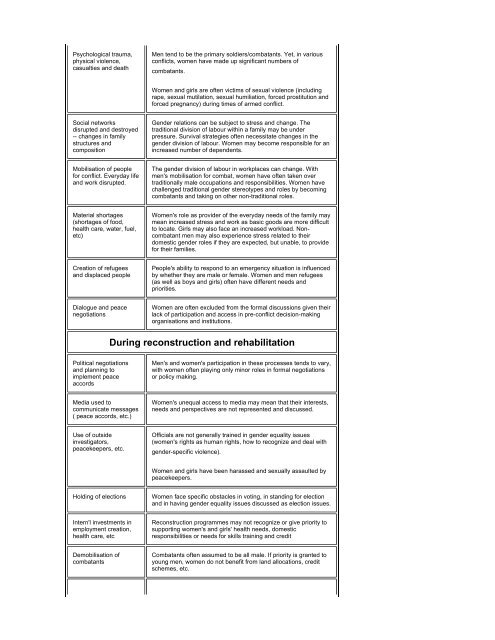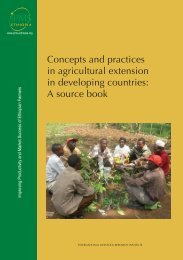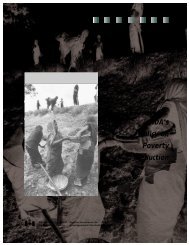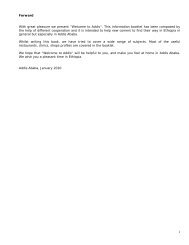Gender Equality & Peacebuilding: An Operational Framework
Gender Equality & Peacebuilding: An Operational Framework
Gender Equality & Peacebuilding: An Operational Framework
You also want an ePaper? Increase the reach of your titles
YUMPU automatically turns print PDFs into web optimized ePapers that Google loves.
Psychological trauma,physical violence,casualties and deathMen tend to be the primary soldiers/combatants. Yet, in variousconflicts, women have made up significant numbers ofcombatants.Women and girls are often victims of sexual violence (includingrape, sexual mutilation, sexual humiliation, forced prostitution andforced pregnancy) during times of armed conflict.Social networksdisrupted and destroyed-- changes in familystructures andcomposition<strong>Gender</strong> relations can be subject to stress and change. Thetraditional division of labour within a family may be underpressure. Survival strategies often necessitate changes in thegender division of labour. Women may become responsible for anincreased number of dependents.Mobilisation of peoplefor conflict. Everyday lifeand work disrupted.The gender division of labour in workplaces can change. Withmen's mobilisation for combat, women have often taken overtraditionally male occupations and responsibilities. Women havechallenged traditional gender stereotypes and roles by becomingcombatants and taking on other non-traditional roles.Material shortages(shortages of food,health care, water, fuel,etc)Women's role as provider of the everyday needs of the family maymean increased stress and work as basic goods are more difficultto locate. Girls may also face an increased workload. Noncombatantmen may also experience stress related to theirdomestic gender roles if they are expected, but unable, to providefor their families.Creation of refugeesand displaced peoplePeople's ability to respond to an emergency situation is influencedby whether they are male or female. Women and men refugees(as well as boys and girls) often have different needs andpriorities.Dialogue and peacenegotiationsWomen are often excluded from the formal discussions given theirlack of participation and access in pre-conflict decision-makingorganisations and institutions.During reconstruction and rehabilitationPolitical negotiationsand planning toimplement peaceaccordsMen's and women's participation in these processes tends to vary,with women often playing only minor roles in formal negotiationsor policy making.Media used tocommunicate messages( peace accords, etc.)Women's unequal access to media may mean that their interests,needs and perspectives are not represented and discussed.Use of outsideinvestigators,peacekeepers, etc.Officials are not generally trained in gender equality issues(women's rights as human rights, how to recognize and deal withgender-specific violence).Women and girls have been harassed and sexually assaulted bypeacekeepers.Holding of electionsWomen face specific obstacles in voting, in standing for electionand in having gender equality issues discussed as election issues.Intern'l investments inemployment creation,health care, etcReconstruction programmes may not recognize or give priority tosupporting women's and girls' health needs, domesticresponsibilities or needs for skills training and creditDemobilisation ofcombatantsCombatants often assumed to be all male. If priority is granted toyoung men, women do not benefit from land allocations, creditschemes, etc.





